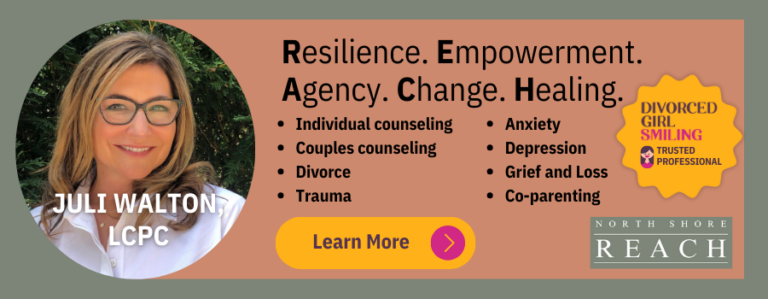Everyone understands the significance and power of money. It’s not supposed to buy us happiness, but it sure can make us comfortable, and provide choices in our lives. Money can be used to make insecure people feel successful, it can be used to be loving, generous, and thoughtful, and it can also be used as a weapon in a marriage to control a partner silently. Using money to control someone is financial abuse. Financial abuse in a marriage doesn’t get the attention it deserves.
Conversations around abuse in marriage typically include physical, sexual, emotional, and verbal abuse, while financial abuse in a marriage is less observable, and not often seen outside of the interactions between two partners. This makes financial abuse seem less common; however, it happens to be very common. The difference is, financial abuse exists in a more private and secretive way, where outsiders don’t see bruises, and children don’t cower in fear.
Financial abuse in a marriage is always intentional, with the abuser’s purpose clearly meaning to control and exploit their partner and prevent them from having the independence and freedom to find sources of happiness outside of the marriage. When this control is exerted through finances, it can have detrimental effects on the abused.
The abused often feel broken down, shamed, parentified, afraid, helpless, lacks self-esteem, embarrassed, and hopeless, just as if they were beaten or verbally attacked.
Financial abuse in a marriage can be very damaging, and it’s important to recognize the signs for yourself, or someone you care about. Just because this is a less public type of problem, does not make it less frightening, or destructive. When an individual fears spending even small amounts of money because of the consequences that will occur, they become unable to make healthy decisions, resulting in a decrease in healthy functioning, fostering the dependence the abuser is creating.
There are many angles a Financially abusive partner can come from, yet they all translate into the same toxic outcome–one partner exercising control over the other partners access to resources/fund.
Examples of financial abuse in a marriage include:
1. Restricting access to money so that the abused are forced to ask for money or are made to believe they don’t need it or deserve it.
2. The abuser typically controls all financial decisions, reminding the partner of their lack of power, and where their place in the hierarchy of the relationship is.
3. The abuser will withhold funds for fundamental needs, such as groceries, personal items, gas, or clothing, forcing the abused to explain, justify, or simply and shamefully do without. This frequent line of questioning creates self-doubt in the abused, which is also caused gaslighting.
4. The idea of the spouse seeking employment is forbidden, and if the subject comes up the abuser may become threatening to remind the abused partner of who is in control of decisions and finances. This is a reminder of their lack of power, and independence. These gaslighting techniques can be persuasive, making the abused question themselves, and pervasive, causing damage to the abused mental and emotional health.
Other types of financial abuse..
Which are less restrictive may seem less worrisome but should still be identified as problematic, financially abusive behaviors. These can include:
1. When a partner monitors the others spending in minutia, questioning, and challenging every purchase it should be noted that this is unhealthy and imbalanced behavior.
2. If a partner gives the other partner an allowance, it is a mechanism of control. When the allowance is used in a punitive way because the abuser is not happy about how the allowance was spent it is important to understand this is also financial abuse.
3. Often when an abusive partner makes a large purchase, while continuing to restrict the abused it needs to be understood that this is abusive in the manner of exploiting their access to money while limiting the other partner.
These scenarios, and others which may be unique to specific marriages are all forms of financial abuse, control, and exploitation. The consistent theme among these examples is that marital assets are being withheld, controlled, and used in a way to punish one spouse, to maintain a position of power, control, and manipulation.
When something like this is happening in a marriage, help needs to be found, swiftly, and without question. Abuse is abuse, and no one person has the right to intentionally influence or limit another individual with the intent to harm, manage, or control their choices, freedom, or independence.
If you are experiencing these overpowering maneuvers in your marriage, you must get help. Often fear keeps the abused from seeking help, as well as the belief that they must have done something to deserve this treatment from their spouse. It is critical to remember that there is never a behavior that warrants any abuse, and financial abuse is no different.
How can you get help if you feel like you are a victim of financial abuse in your marriage?
1. Become financially educated and empowered.
Take a financial planning class (many of them are free in your community) or start reading articles or listening to podcasts about finances, money, and financial planning. Social media is a great place to find these kinds of articles and podcasts.
2. Freeze your credit report.
This is the best way to ensure that your spouse will not take out any new debt in your name. If you don’t know how to do this, contact a mortgage lender, financial advisor, or an attorney. You can even ask a friend.
3. Contact a divorce attorney.
Even if you are unsure if you want a divorce, having a consultation with a divorce attorney will help you become empowered to learn what your options are.
4. You need emotional support.
That might mean a therapist, a coach or both. It’s important to remember that you don’t have to go through this alone. You can’t. It’s OK to reach out for help. And it’s OK to fall apart in your therapist’s office and cry about how hard life is as a victim of financial abuse. During this frightening and confusing time, you should feel safe to be vulnerable with your therapist.
5. Reach out to a trusted family member.
Make sure it is someone you can trust and someone who is non-judgmental, but having family support will help you achieve these other goals because you might need to borrow money to work with these professionals. You know who in your family (or friends) you can count on. It will mean the world to you when they show up for you in a way you never expected. If you are feeling ashamed or concerned about their reactions remember they have probably been waiting for you to ask for help since what you have been going through has probably been visibly weighing on you.
In closing, financial abuse in a marriage is extremely painful and difficult to handle.
But you can and will get out of the situation. It’s not easy, and it takes a lot of courage to take the risks to get out of an abusive relationship. Furthermore, when it comes to financial abuse, people might not understand your need to leave. Why? Because financial abuse is invisible. It’s hidden well. Just believe in yourself and believe that you deserve the happiness of freedom—and that includes financial freedom. If you want to reach out to talk with me, I am here for you.





















